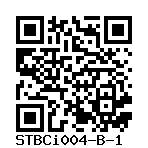SFC832-03-06 LRRK2WT/WT C47
STBCi004-B-1
General
Cell Line |
|
| hPSCreg name | STBCi004-B-1 |
| Cite as: | STBCi004-B-1 (RRID:CVCL_A8X1) |
| Alternative name(s) |
SFC832-03-06 LRRK2WT/WT C47
|
| Cell line type | Human induced pluripotent stem cell (hiPSC) |
| Similar lines |
STBCi026-A-1 (SFC840-03-03 LRRK2-/-D10) STBCi026-A-2 (SFC840-03-03 LRRK2-/-C11) STBCi026-A-3 (SFC840-03-03 LRRK2 WT/R1441C H3) EDi001-A-2 (AST23-1KO-3, AST22-1KO-3, AST-23_SCAKO Clone 3, AST-22_SNCAKO Clone 3) Donor's gene variants: SNCA, SNCA, SNCA, SNCA Donor diseases: Parkinson disease EDi001-A-3 (AST23_SNCAKO Clone 1, AST22-1KO-1, AST23-1KO-1, AST22_SNCAKO Clone 1) Donor's gene variants: SNCA, SNCA, SNCA, SNCA Donor diseases: Parkinson disease EDi001-A-4 (AST22-2KO-6, AST23_SNCAKO Clone 6, AST22_SNCAKO Clone 6, AST23-2KO-6) Donor's gene variants: SNCA, SNCA, SNCA, SNCA Donor diseases: Parkinson disease |
| Last update | 8th December 2022 |
| User feedback | |
Provider |
|
| Generator | StemBANCC (STBC) |
| Distributors | |
External Databases |
|
| BioSamples | SAMEA5859478 |
| Cellosaurus | CVCL_A8X1 |
| Wikidata | Q102114943 |
General Information |
|
| Publications | |
| * Is the cell line readily obtainable for third parties? |
Yes Research use: allowed
Clinical use: not allowed
Commercial use: not allowed
|
| Subclone of | |
Donor Information
General Donor Information |
|
| Sex | female |
Phenotype and Disease related information (Donor) |
|
| Diseases | A disease was diagnosed.
|
Donor Relations |
|
| Other cell lines of this donor | |
External Databases (Donor) |
|
| BioSamples | SAMEA104129730 |
Ethics
Also have a look at the ethics information for the parental line
STBCi004-B
.
| For generation of the cell line, who was the supplier of any recombined DNA vectors or commercial kits used? |
hIPSC Derivation
General |
|
|
The source cell information can be found in the parental cell line
STBCi004-B.
|
|
Reprogramming method |
|
| Vector type | Non-integrating |
| Vector | Sendai virus |
| Genes | |
| Is reprogramming vector detectable? |
No |
| Methods used |
PCR
|
Vector free reprogramming |
|
Other |
|
| Derived under xeno-free conditions |
Unknown |
| Derived under GMP? |
Unknown |
| Available as clinical grade? |
Unknown |
Culture Conditions
| Surface coating | Matrigel/Geltrex |
| Feeder cells |
No |
| Passage method |
Enzyme-free cell dissociation
EDTA
|
| Medium |
mTeSR™ 1
|
Characterisation
Analysis of Undifferentiated Cells
| Marker | Expressed | Immunostaining | RT-PCR | Flow Cytometry | Enzymatic Assay | Expression Profiles |
| NANOG |
Yes |
|
||||
| TRA 1-60 |
Yes |
|
||||
| POU5F1 (OCT-4) |
Yes |
|
||||
| SSEA-4 |
Yes |
|
Spontaneous EB differentiation and qPCR for trilineage markers
Differentiation Potency
In vitro spontaneous differentiation
In vitro spontaneous differentiation
In vitro spontaneous differentiation
Microbiology / Virus Screening |
|
| HIV 1 | Negative |
| HIV 2 | Negative |
| Hepatitis B | Negative |
| Hepatitis C | Negative |
| Mycoplasma | Negative |
Certificate of Analysis |
|
| Is there a certificate of analysis available? |
Yes
Passage:
|
Genotyping
Karyotyping (Cell Line) |
|
| Has the cell line karyotype been analysed? |
Yes
Karyotype abnormalities: none compared to fibroblasts
Passage number: 40
Karyotyping method:
Molecular karyotyping by SNP array
http:// |
Other Genotyping (Cell Line) |
|
Genetic Modification
| Disease/phenotype related modifications |
|


Login to share your feedback, experiences or results with the research community.